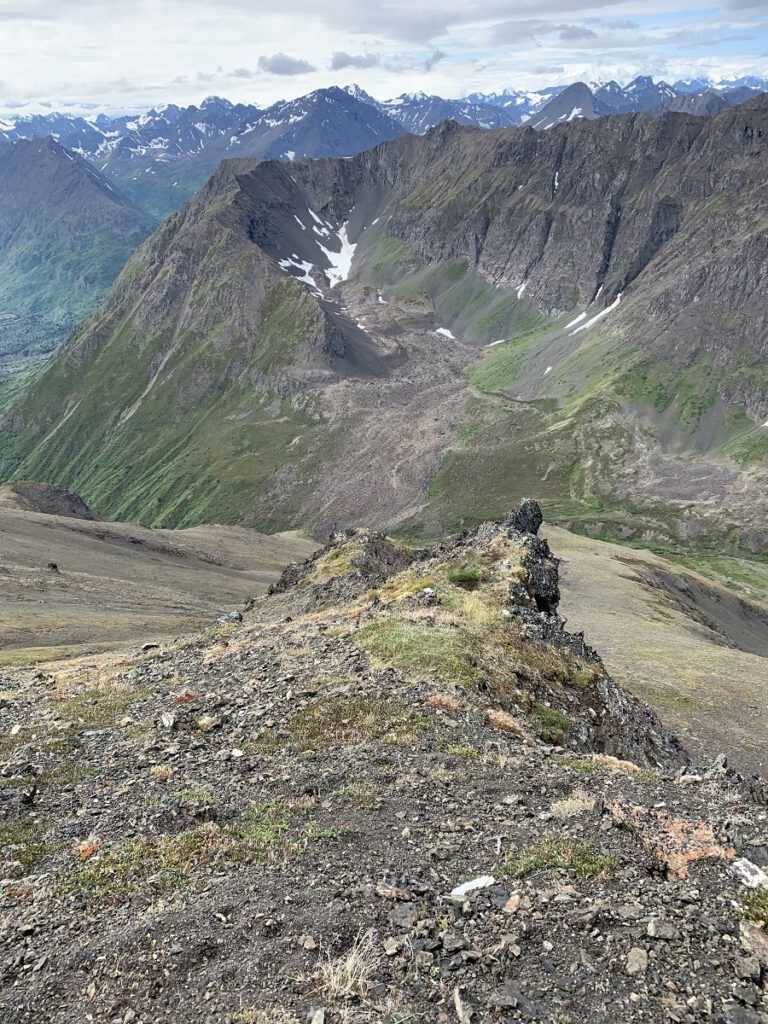
Sheep hunting. Merely the words conjure up images of loopy-horned rams against a rugged backdrop of mountains carved into valleys by silty glacial runoff or clear mountain streams. Written and dreamt about by generations of outdoor enthusiasts, it’s easy to see why hunters’ love affair with the species only gets stronger over time. A quote from author and singer Russell Thornberry:
“Sheep hunters are a different breed, willing to exert themselves to their physical limits and sometimes beyond. They make friends with pain of aching muscles, burning lungs, and long nights on a mattress of granite and a ceiling that often leaks wind, rain, and snow. When relating their Ovis experiences to non-sheep hunters, the question arises, sometimes silently, in the minds of their listeners: Why would anyone in their right mind subject themselves to that kind of physical torture? No one but another sheep hunter would understand the answer to that question, so to expound on the subject further will, in all probability, be singing to the choir.”
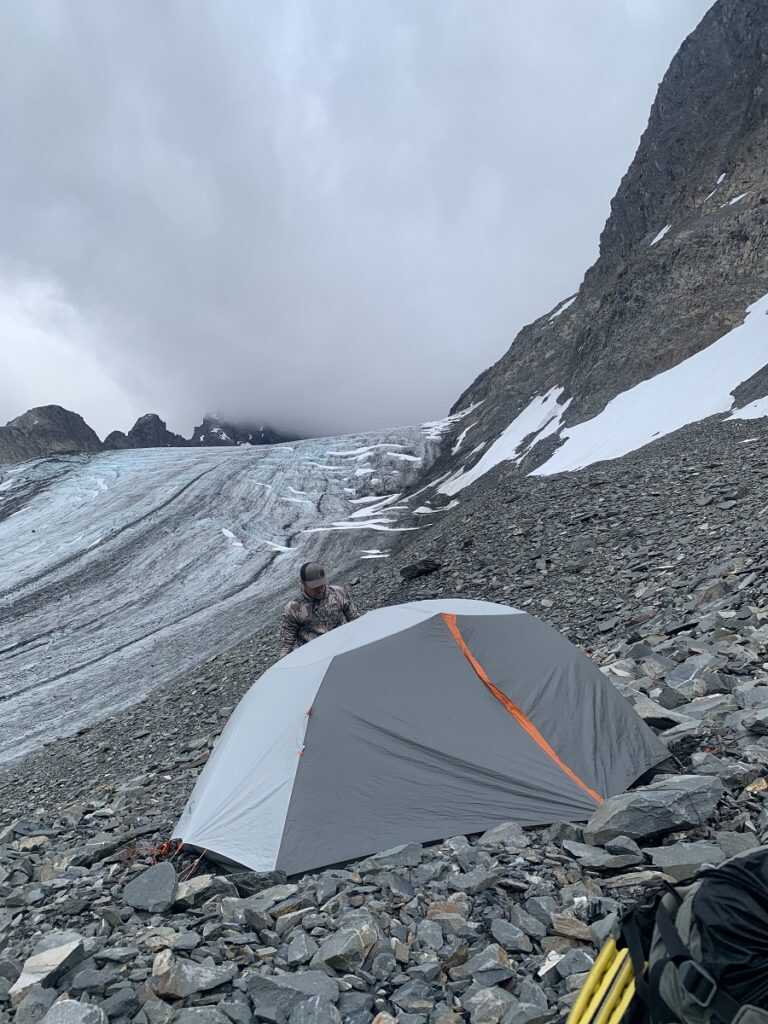
Whether you’re a veteran mountain hunter or just getting started, prose-like Thornberry’s strikes true to an ever-growing amount of people who want to take on the challenge of sheep and sheep country. This correlates to more attention as a species with a higher demand for hunt opportunities at a finite resource, ergo, demand far outweighs supply. Breaking it down further, unless you’re one of the lucky few who hunts their home state or territory for sheep consistently with family and friends, the opportunity is getting harder to come by for average folks making the preparation that much more key.
While the sheep world is full of a myriad of options tailored to different hunting preferences (helicopters in Canada, bush planes in Alaska, and walk or float in DIY hunts in many places), there’s a constant. Sheep generally live in remote, rugged places and hunters need to be prepared to hunt them safely and well. Below are some starting points to ponder if a sheep hunt is in your near future or on your bucket list.
Mental Preparation
Arnold Schwarzenegger said, “Where the mind goes, the body will follow.” I’m sure Arnie wasn’t speaking to hunters but the sentiment remains. Commit to a goal and don’t quit; now is the time to start becoming mentally tough and not stray from benchmarks set. Getting in the habit of digging down deep will not only give you a better physical outcome but train your mind to not give in to discomfort during the hunt.
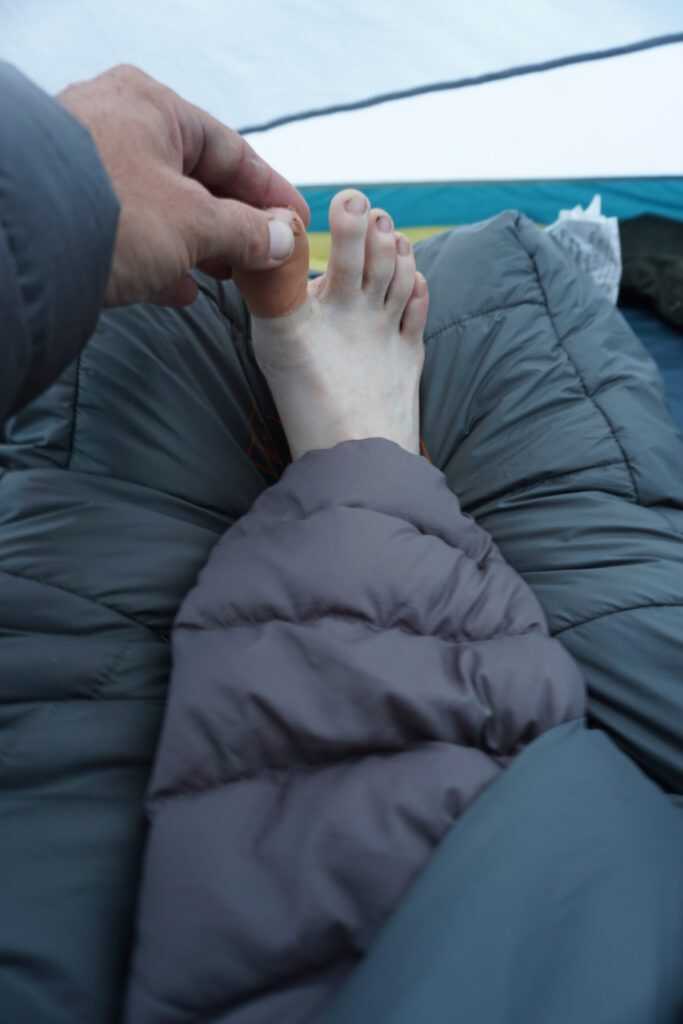
Sub Chapter: Research
This falls under mental preparation as well for the simple fact of setting realistic goals for your hunt is crucial. If you’re not going to be happy with anything but a record-book sheep, looking at draw areas might be more up your alley than an over-the-counter unit. Regardless of experience or trophy size sought, learn what your area has historically produced for average ram size and age. This will help on day one of the hunt if you stick your head out and see sheep from the tent (it happens) and determine if you want to end your hunt abruptly or keep looking.
Physical Preparation
Ultra-lightweight backpacking gear is great and I use a lot of it but if I can shave a few pounds right out of the gate starting with body fat, that’s where I begin. It still comes off of my total weight (sum of body, clothes, gear, etc.) I have to get up a mountain.
Volumes have been written on getting in shape for hunting so I won’t delve into specific workouts here. Consult a doctor, do some research on a workout regimen you can stick to and build upon, then get to it. The sooner the better as I haven’t gotten myself in too good of shape for a hunt yet.
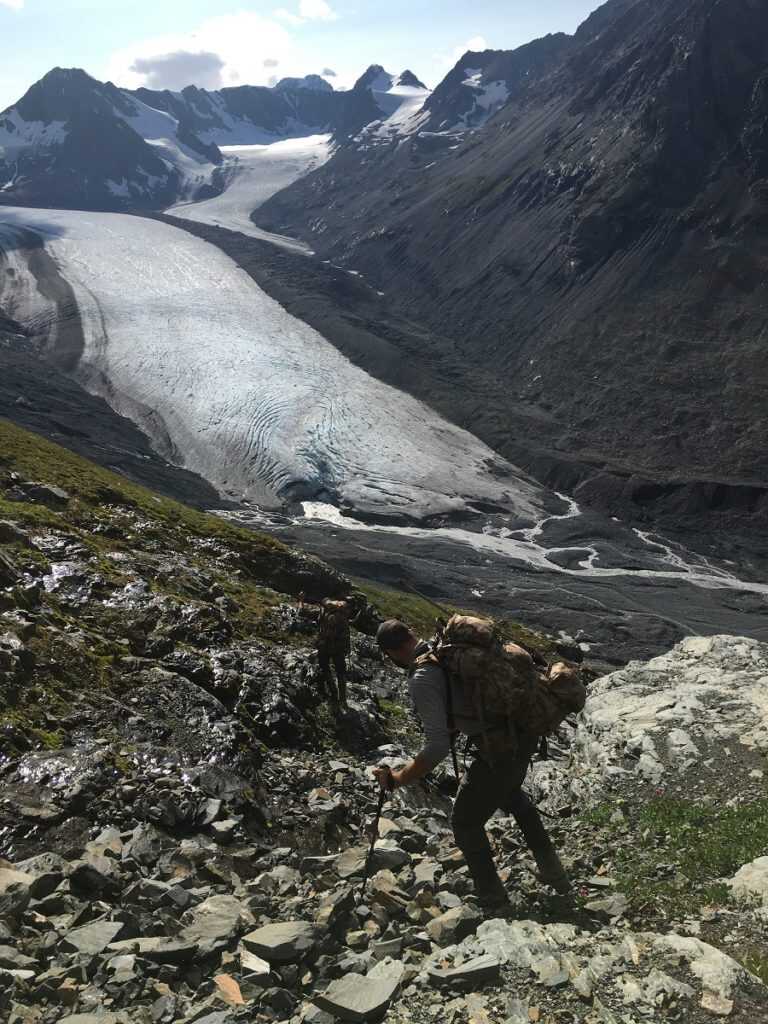
I’ve noticed, unsurprisingly, that the more available the gym is, the more I use it so in the interest of better health I’ve started to accrue my own equipment. I watched for a sale and bought adjustable dumbbells for my free weights and a medicine ball. One day I was at the landfill and found a weight bench that needed a bolt and was good as new. I was also gifted a treadmill with a burnt motor I replaced for a couple of hundred bucks. All told I’m into my basic home equipment about $800.00 and spend more time working out instead of looking for a parking place at the gym in town.
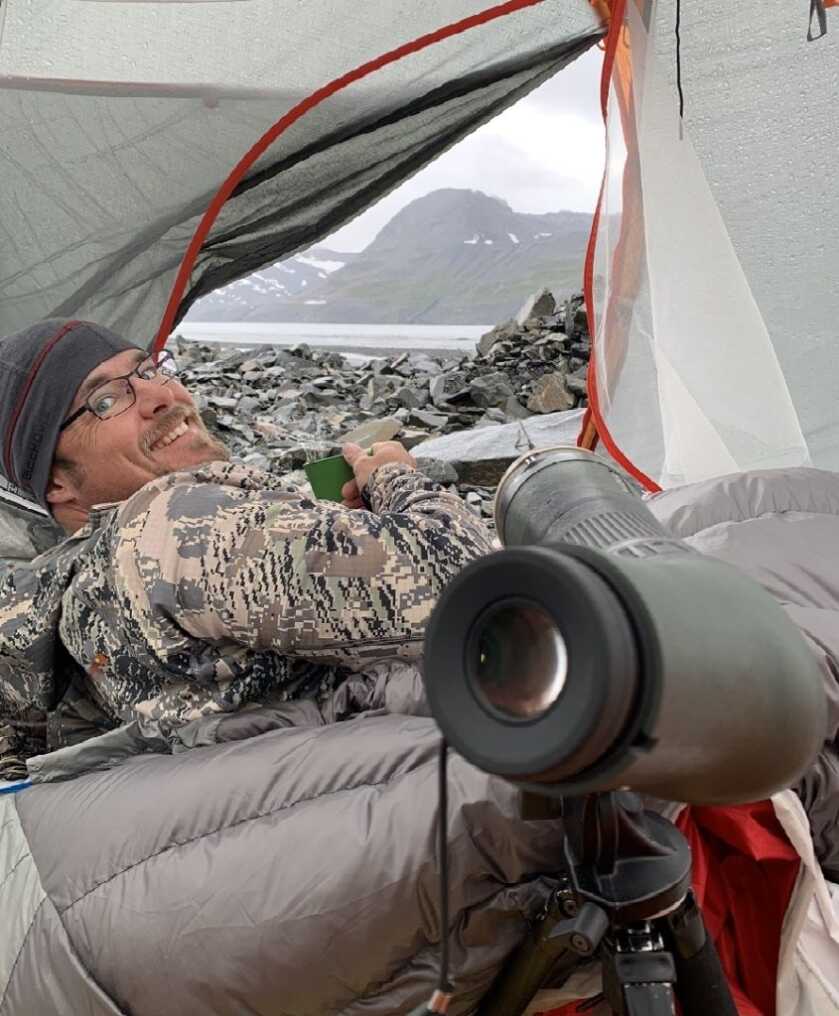
I try to stay in decent shape all year as I’m getting too long in the tooth for cyclical exercise. I’ve found it easier to maintain a light regimen through the winter then ramping it up through spring and summer until Dall sheep season starts August 10. Below is my rough timeline for my yearly workout schedule:
January-March:
Monday- 30-35 minutes aerobic exercise, core and upper body free weights
Tuesday- off
Wednesday- 30-35 minutes calisthenic training circuit (anaerobic exercises such as situps, pushups, etc.)
Thursday- off
Friday- 30-35 minutes aerobic exercise, core and upper body free weights
Saturday/Sunday- off
April- July:
Hip flexors, lower back, knees and even feet need to be beefed up well ahead of sheep season. After a winter of treadmill miles and weights, I gratefully head for the mountains to look for shed antlers to mix up my routine and start getting backpacking muscles in shape. Any hiking with a weighted pack will help though; I know guys who have walked the high school track in their hometown due to an absence of topography and had great hunts.
This time of year my weekly routine looks something like this:
Monday- 40 minutes aerobic exercise, core and upper body free weights
Tuesday- 40 minutes aerobic exercise
Wednesday- off
Thursday- 40 minutes calisthenic training circuit (anaerobic exercises such as situps, pushups, etc.)
Friday- 40 minutes aerobic exercise, core and upper body free weights
Saturday/ Sunday- one three- mile or more pack with weight (weighted packs are notoriously hard on joints so I keep it light- around 20 pounds – until just weeks before season then bump to forty, then sixty pounds)
August:
Monday through Sunday- hunting
September-December:
After Dall sheep, I’ll give myself a couple of weeks “off”. It allows me time to heal up, get some writing done, etc. I’m out hunting for most of my cardio if things go right after that and will incorporate a winter-like schedule mid-week for the rest of the year. This is what I’ve found works for me and my rather torn and tattered, post-bareback and saddle bronc riding body. It’s not enough for some and may be too much for others; listen to your body and make your own workouts with professional assistance.
Now, the hunt’s booked and you’ve dug down deep and made some achievable mental and physical goals that can be built on throughout the year. The main project, ie. You should be coming along nicely now and the heavy work of finding a workout routine and incorporating it into daily life should be old hat. With that in mind, time to work in another arena.
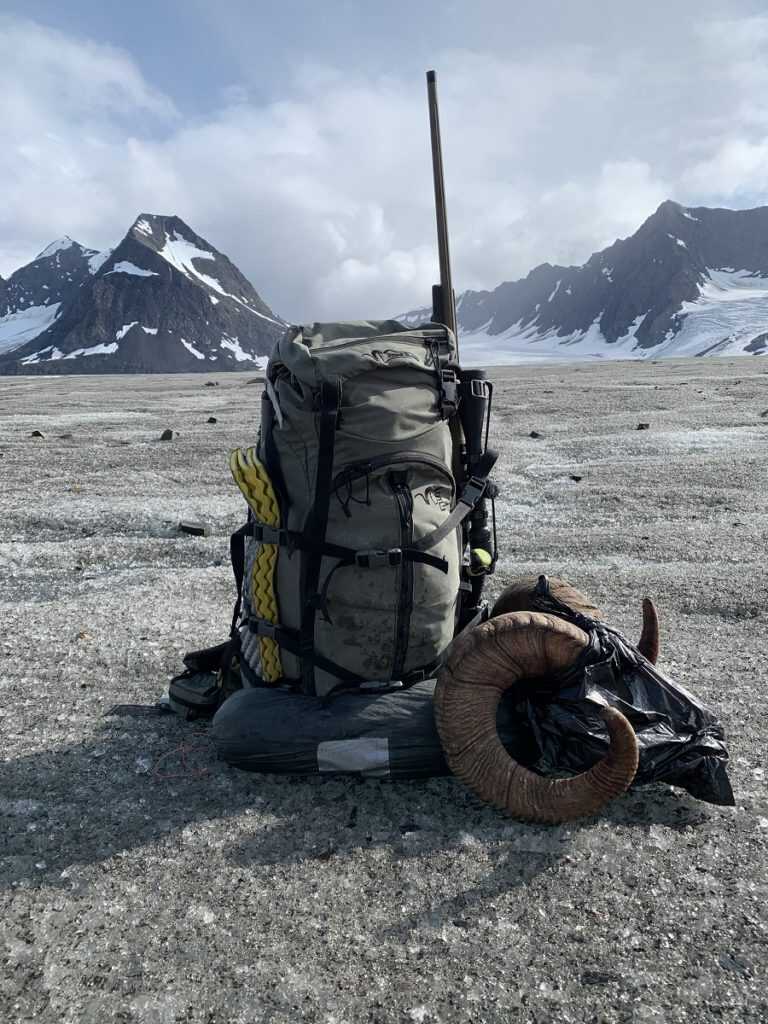
Rifle/Optic
Another key part for sheep success is capitalizing on the hard-earned shot opportunity. For obvious reasons, if you’re in great shape but not confident in your firearm you’re only half prepared. Similar to workout regimens, libraries have been written on sheep rifles but some generalities occur. A lightweight rifle, shooting MOA or better, topped with a quality variable power scope should do everything required of it in the sheep mountains.
Making time to shoot and getting to know your firearm intimately-well ahead of the season will pay dividends when adrenaline is dumping into your bloodstream at the moment of truth. Shot distances can and do run the gamut of yardage so having a set maximum range and being comfortable out to it is critical. Steep angles, cross-canyon shots, and less-than-ideal shooting positions are the rule, not the exception.
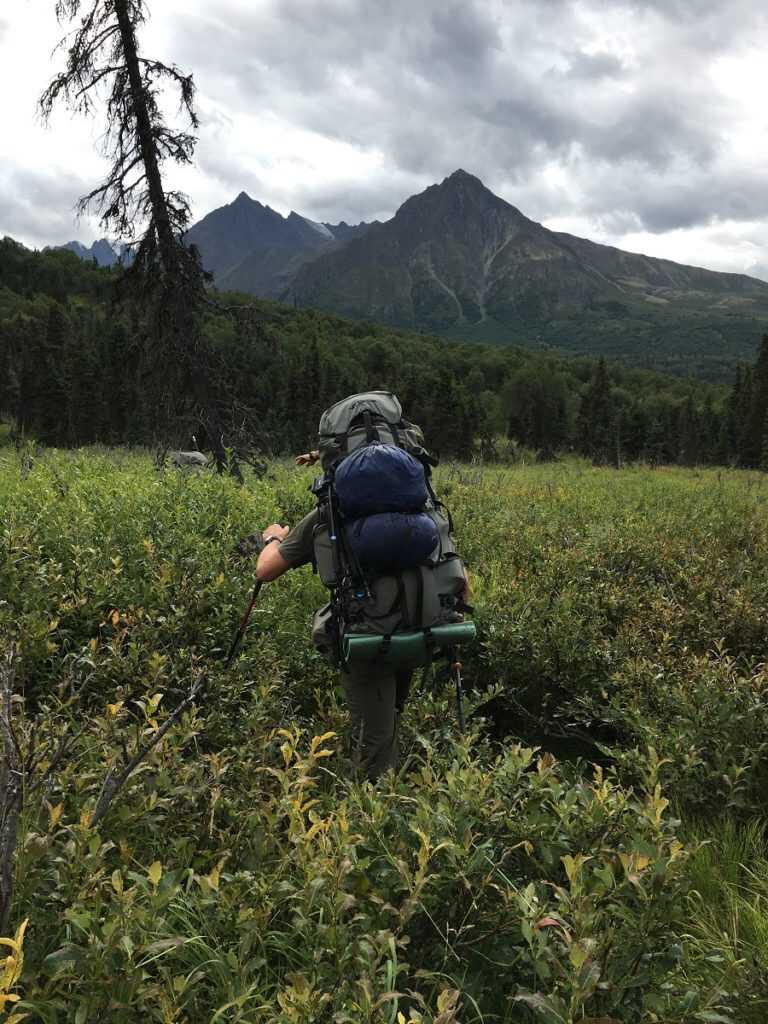
Conclusion
Whether you’re a gearhead or loathe having to replace trusted equipment, odds are you’re going to need to do some shopping for the upcoming hunt. In the next segment, we’ll break down gear ideas by category; in your camp, in your pack, and on your body.

